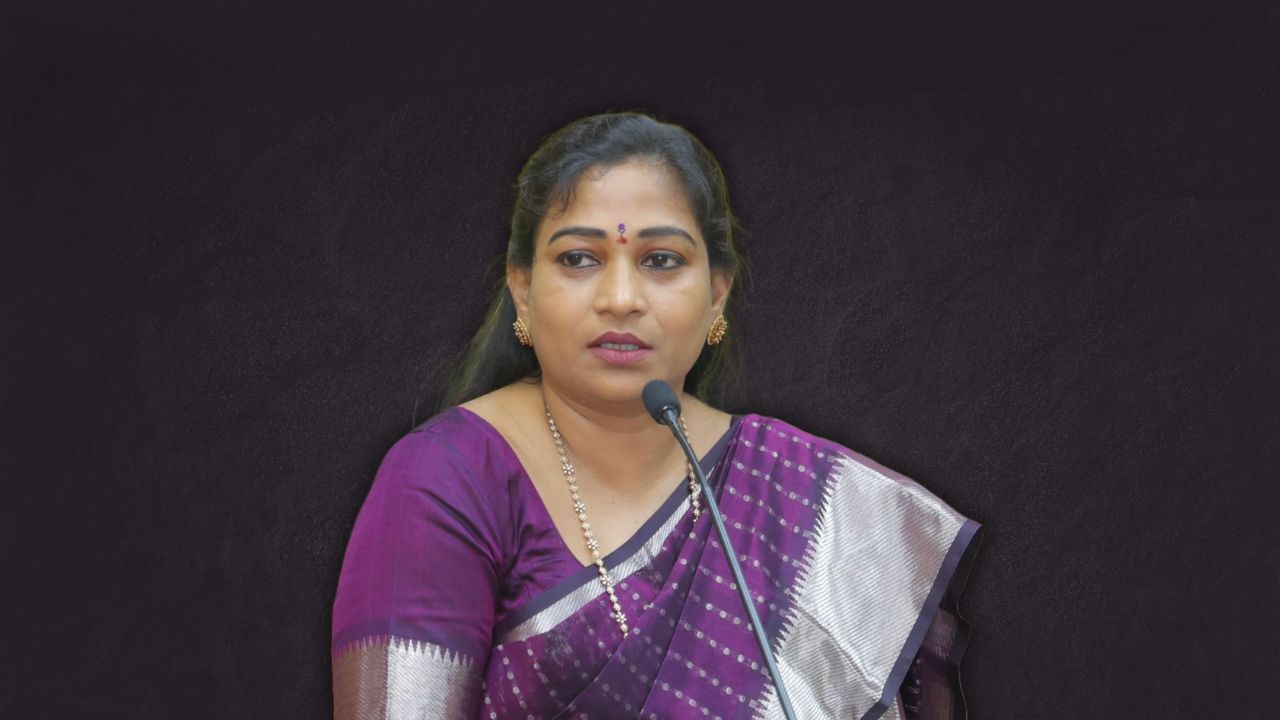Home Minister Vangalapudi Anitha defended the proposal by accusing opposition parties, especially the Yuvajana Sramika Rythu Congress Party, of spreading baseless allegations and “malicious propaganda" aimed at damaging the state’s brand image.
Published Aug 20, 2025 | 7:39 PM ⚊ Updated Aug 20, 2025 | 7:39 PM

Andhra Pradesh Home Minister Vangalapudi Anitha
Synopsis: The Andhra Pradesh government has announced plans to introduce a bo;; in the coming Assembly session to curb the spread of fake news on social media, most likely in the lines of Karnataka’s draft Misinformation and Fake News (Prohibition) Bill, 2025. Home Minister Vangalapudi Anitha said the move was aimed at countering opposition-driven “malicious propaganda,” citing examples of misleading reports on flooding in Amaravati and on the Prakasam Barrage gates.
The ruling Telugu Desam Party-led National Democratic Alliance government in Andhra Pradesh is considering legislation to regulate online misinformation, likely along the lines of what the Congress government in Karnataka is attempting.
Addressing a press conference in Amaravati on Tuesday, 19 August, Home Minister Vangalapudi Anitha announced that the government was planning to introduce a bill in the upcoming Assembly session to curb the spread of false propaganda on social media.
While Karnataka has already finalised the contours of its proposed law, Andhra Pradesh is only now floating the idea. The move is expected to spark concerns over possible misuse, particularly the risk of silencing voices that raise genuine issues unpalatable to those in power.
Anitha defended the proposal by accusing opposition parties, especially the Yuvajana Sramika Rythu Congress Party, of spreading baseless allegations aimed at damaging the state’s brand image and undermining the coalition government’s “Super Six” welfare schemes.
Citing specific examples, she pointed to false claims about flooding in Amaravati and alleged malfunctioning of the Prakasam Barrage gates as instances of “malicious propaganda.” She added that some individuals who circulated such content deserved to face sedition charges.
Notably, on 11 May 2022, the Supreme Court suspended the operation of sedition section 124A of the Indian Penal Code, observing that its use could violate the fundamental right to free speech under Article 19(1)(a) of the Constitution.
The minister further said the government plans to set up a fact-finding committee to verify information and ensure that people know which news is fake and which is genuine.
Karnataka’s Misinformation and Fake News (Prohibition) Bill, 2025 has triggered debate after its details were first leaked in June.
The bill proposes stringent punishments: up to seven years in jail and fines of ₹10 lakh for spreading fake news (fabricated or manipulated content), and two to five years for misinformation (knowingly or recklessly reporting false statements).
It also provides for the creation of a minister-led ‘Fake News on Social Media Regulatory Authority’ with powers to block content considered misogynist, obscene, or disrespectful to religious sentiments. Special courts would handle such cases, with all offences categorised as cognisable and non-bailable, raising fears of arbitrary arrests.
Critics argue that the Karnataka bill suffers from vague definitions, lack of independent oversight, and possible violations of free speech rights under Article 19(1)(a). Karnataka’s IT Minister Priyank Kharge has assured that consultations will be held to address concerns, but the executive-driven framework remains contentious.
Compared to Karnataka’s detailed draft, Andhra Pradesh’s proposal is still in its early stages. Yet, both states face similar questions: whether such laws can withstand constitutional scrutiny, and whether they strike a balance between tackling misinformation and protecting free expression.
(Edited by Dese Gowda)
